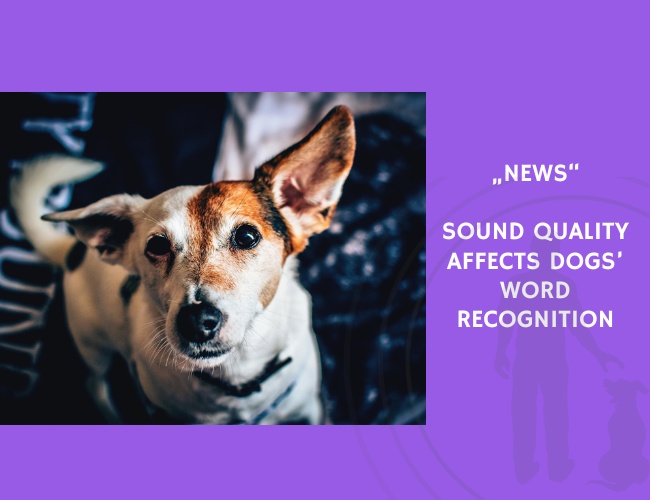Higaki, Faragó, Pogány, Miklósi, & Fugazza (2025) examined how sound quality affects dogs’ recognition of human speech. Across three experiments, the team compared direct human speech with playback via loudspeakers and Augmentative Interspecies Communication (AIC) buttons.
In Study 1, dogs trained on verbal action cues responded most reliably to direct human speech, with reduced accuracy when cues were played through loudspeakers and poorest performance with AIC buttons. Study 2 tested Gifted Word Learner (GWL) dogs, known for their exceptional vocabulary. These dogs showed similar patterns: best performance for direct speech, intermediate for loudspeakers, and lowest for AIC buttons. Study 3 revealed that while GWL dogs could learn new toy names from loudspeaker recordings, their ability to generalize these names to direct human speech was reduced.
Overall, the findings demonstrate that sound degradation significantly impacts canine word recognition. The study emphasizes the importance of using high-quality audio in canine cognition research and cautions against relying on AIC devices for serious word recognition testing. The results also suggest that dog owners and trainers should consider clear, direct communication when teaching verbal commands.
Source: Higaki, F., Faragó, T., Pogány, Á., Miklósi, Á., & Fugazza, C. (2025). Sound quality impacts dogs’ ability to recognize and respond to playback words. Journal: Scientific Reports, Volume 15. Publication Date: 2025-04-28. Authors: Fumi Higaki, Tamás Faragó, Ákos Pogány, Ádám Miklósi, Claudia Fugazza. References: 39. Citations: -.










